What You Need To Know About Emergency Vets
Happy Wednesday everyone! Needing an emergency vet is a stressful and scary thing! Needing to visit one of these facilities is different than going to a regular vet appointment. Today on the blog we talking about What You Need To Know About Emergency Vets. With these tips and information, I hope you will be better prepared should you have an emergency. Want more tips, check out my post 11 First Aid Procedures for Your Dog In Case Of Emergency.
What Is An Emergency?
First determine the level of seriousness. I once took my dog Bear for a walk and we spent time playing in the creek behind our cabin. Walking home I noticed his paw was bleeding but after looking further, it was a tiny scrape that I was able to stop the bleeding and put a small bandage on it.
Most veterinarians agree that certain conditions are too risky to wait before seeking treatment. These include:
*repeated vomiting or diarrhea, especially if you see blood
*seizures
*avoiding food or water for a full day
*injury in a traumatic accident or in an attack by another animal
*swallowing a foreign body
*difficulty breathing
*abdominal bloating
*high fever

What Are Emergency Vets?
Regular vet practices aren’t staffed around the clock. Some vet practices work together to provide after-hours care, especially in areas where emergency vets aren’t available. The after-hours answering service usually provides instructions to follow in case of emergency. This happened to us when Jake had his second Luxating Patella surgery. I called on a Saturday and was redirected to another vet hospital. We can’t control when our pets get sick or have an accident but emergency medicine for pets is as sophisticated as the human medical system and prices are double if not triple especially on a weekend. This is why many pet owners get pet insurance. See my posts How To Find Pet Insurance and How To Pay Your Vet Bill If You Don’ Have Pet Insurance.
Below are some of the types of emergency veterinary practices you might encounter.
Full-service Veterinary Clinics:
Some veterinarians provide routine care (wellness exams, vaccinations, minor surgeries, etc.) during regular business hours and have on-call veterinarians who see patients in emergencies after hours.
A full-service clinic can be a good choice because their vets will also provide routine follow-up care to your pet during their recovery.
24-hour Emergency Vet Clinics:
These round-the-clock veterinary clinics provide routine health care as well as emergency services. Once only available at veterinarian teaching hospitals, 24-hour emergency veterinary clinics are now available in every part of the country. In some places, they even have ambulance services to pick up injured or ill pets.
If you’re near your regular vet, you’ll likely want them to perform any follow-up care your pet might need. But when you’re traveling, it’s better if your pet sees the same vet until they’re fully recovered. When you call to discuss bringing your pet in, ask whether the emergency vets at the clinic will also provide follow-up care.
After-hours Veterinary Hospitals:
Some emergency vets don’t provide any routine health care. These facilities often have specialized equipment and only staff emergency vets who treat the most severely injured and ill pets in consultation with their regular veterinarian. The pets are then referred back to their regular veterinarian for follow-up care.
Generally these hospitals open when regular veterinarians close for the day, and are often available 24-hours on weekends and holidays.
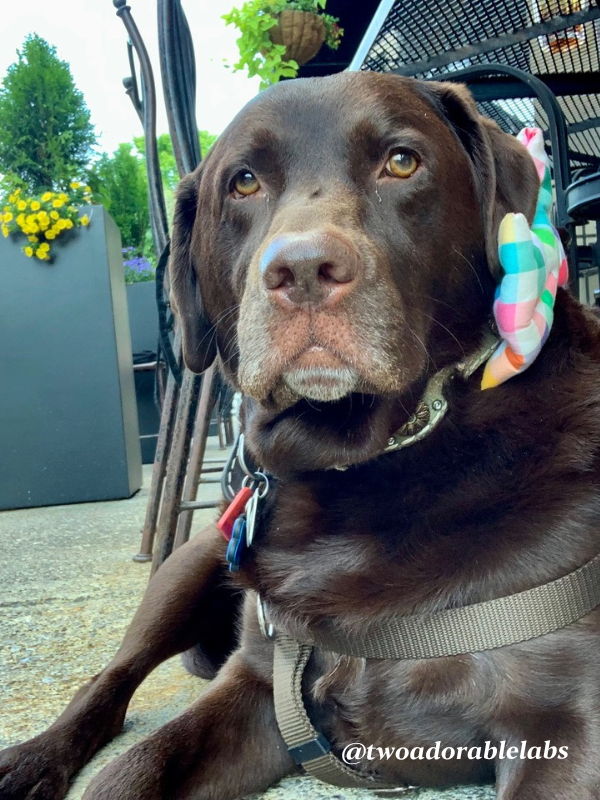
What Emergency Vets Want You To Know
Emergency veterinarians operate a little differently than regular veterinarians. Knowing what to expect — and what will be expected of you — will make an already tense situation a little easier.
Call First!
*Always call the emergency vets before you go.
*Have a list of emergency vets handy and make sure they take walk-ins.
*Also, calling gives the staff time to prepare. And, if time is of the essence, they can walk you through how to stop bleeding or induce vomiting in your pet.
*Some vet offices even have special equipment to help move a large, injured dog from your car into their office without hurting them more. Calling first means they’ll have it ready as soon as you drive up.
Sickest Pets See The Doctor First
It is exactly like an emergency room at the hospital. Like in a human trauma unit, it’s not first-come-first-served. Emergency vets treat those who need immediate attention first. This has happened to me twice with my pets and believe me, the vet staff acted fast and gave me and my dogs immediate and undivided attention.
Expect Higher Costs
Emergency veterinary care is not cheap. Due to the specialized services they provide, the fees you’ll pay to have your pet evaluated and treated by emergency vets are higher than they’d be at your regular veterinarian.
To avoid any surprises, a member of the staff will usually talk to you immediately about the estimated costs. When your only concern is the well-being of your loved pet, it can feel hard to talk about money. Keep in mind that emergency vets care deeply about animals and they want to help you and your pet. But they also need to make sure they can pay their staff and the rent.
So, be prepared for a discussion about how the bill will be settled while your pet is being whisked in for evaluation. You’ll likely need to sign paperwork stating that you agree to pay for your pet’s care, and they might require a deposit before beginning treatment. Securing pet insurance before facing an emergency can help relieve the financial pressure.
Some Veterinarians Prefer to Treat Your Pet Without You Near
At your regular vet, you usually go with your pet to the treatment room. But in most emergency clinics, pets are taken into the back while their owners stay in the waiting room. Sometimes several pets are receiving care at the same time, and this keeps the treatment room from becoming too crowded.
During the pandemic, one of my local vets (I have 3 of them) told me when I called that I could not go into the exam room with Jake and Maggie during their normal routine visit. I had to wait in the car while my dogs were inside being examined. I did not want this and went to another vet. The only time I can understand not being with them is incase of trauma and emergency. I do understand the vet staff needs to act fast and I may only cause more anxiety and stress to the dogs while being in the room not to mention being in the staff’s way.
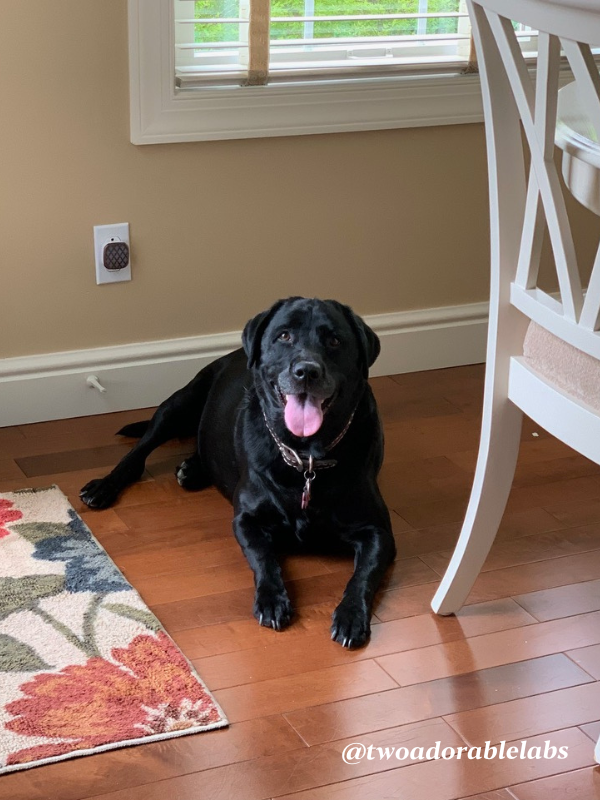
What You Can Do To Be Prepared
Any trip to the vet can be stressful, but the stress of an emergency situation is even higher. Preparing in advance will allow you to focus all your attention on your pet when they need you most.
Locate Emergency Hospitals:
When you’re traveling, it’s important to know where the emergency veterinary hospitals are located. So, when you’re planning your trip, take a minute to research the emergency vets near your hotel or campground, and note their location and hours. Put this information in your pet’s travel bag, so it’s handy if you need it. If you live in or near Columbus, OH, they have an amazing hospital. We are approximately 2 – 3 hours from them which is where we took Jake for his surgery. Check out my post: Jake’s Surgery at Ohio State University Veterinary Medical Center and Dog Friendly Columbus, OH.
Medical Records:
Unlike your regular vet, an emergency veterinarian won’t know your pet’s medical history or have access to her records. If your pet is healthy, it might be sufficient to create a note on your phone with the dates of her vaccinations and any medications and dosages.
For dogs with more chronic conditions, find out if your regular veterinarian allows you to access your pet’s records electronically. If so, be sure to set up an account with a username and password prior to facing an emergency. You can then provide access to that account to the emergency vet.
If you can’t access your pet’s records electronically, scan your pet’s medical file to a USB drive and keeping it in her travel bag. It’s easy to pack, and will provide the emergency vet with all the information they’ll need to treat your pet.
First Aid Kit:
Keep a well-stocked pet first aid kit handy. When you call the emergency vet prior to your arrival, they might ask to you perform some first aid to help stabilize your pet. You’ll want to have all the items you’ll need at your fingertips.
Provide Your Vet’s Contact Information:
Whenever your pet is treated by emergency vets, ask them to follow up with your regular vet. They should share any reports and instructions for follow-up care.
Acclimate Your Dog To Wearing A Muzzle:
Some dogs, when they’re in pain, in an unfamiliar setting, and surrounded by strangers, can react and “defend” themselves. If it’s necessary to apply a muzzle for the safety of the staff, it will be less stressful for your pet if you’ve train him to wearing it in advance.
Honestly I have to give my opinion on this…I understand dog’s react to their situation and the vet staff needs to be protected but I once had a vet muzzle my dog when cutting her nails simply because she was a Rottweiler/Pittie mix. She was showing some anxiety while being at the vet and he took that as aggression. She was forever traumatized by it and we could never cut her nails properly from that point on. She lived to be 13 years old and was scared to death every time I brought out the clippers. I’ve had several pets over the years with different health related problems and never had to muzzle them while at the vet or an emergency situation and all was fine.
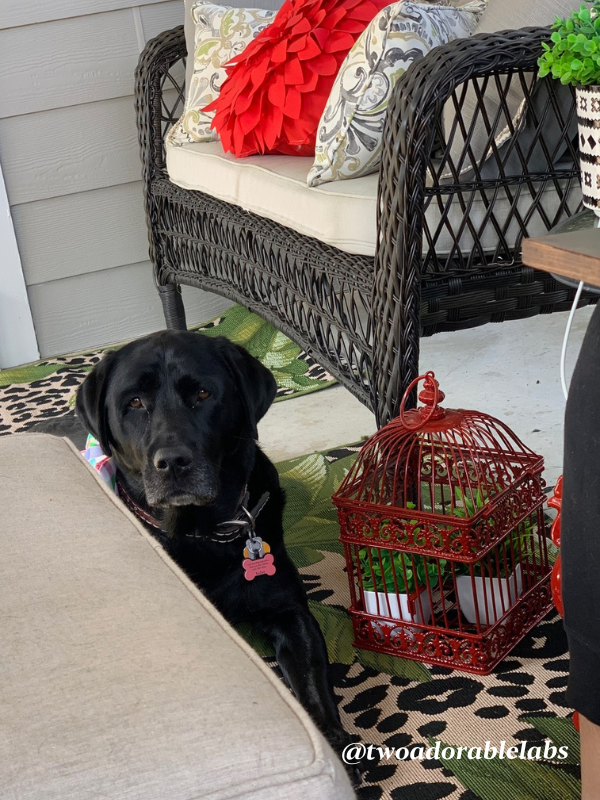
I hope this post provides with you some helpful information. Whether you are traveling with your pet or at home, it’s so important to be prepared incase of emergency. We’ve taken some financial hits over the years with our fur babies but Mr. TAL and I agree…it doesn’t matter how much the cost is, we will do whatever it takes to make them better. I have never known life without a pet and when my sister and I were young and had horses, my parents had the vet come to the house. I can only imagine how much that cost even back then!
I’d love to hear your thoughts on this post! Feel free to contact me or comment below. Thanks so much!
References:


I love hearing from all of you and do my best to respond to each and every one of you. I always enjoy your comments, feedback, and suggestions so keep them coming! If I’ve posted a recipe (for our human and our furry friends) and you try it, don’t forget to tag me on Instagram @twoadorablelabs and use #twoadorablelabs.
If you do try and love my recipes, I would greatly appreciate a comment and rating. I read every single one and respond to them. It also lets Google know that the website contains quality content. The more comments and 5-star ratings, the more Google will show my blog in search results! Thank you so much!
As an Amazon Associate, I earn from qualifying purchases.

You Might Also Like
What Is the “777” Rule For Dogs?
Happy Wednesday, everyone! What is the "777" rule for dogs? The 777 Rule for Dogs is a simple guideline that helps adopters understand what to expect when bringing a new dog home—especially from a shelter or rescue. It reminds you that adjustment takes time and...
What Are The Health Hazards Of Walking A Dog During Winter?
Happy Wednesday, everyone! What Are The Health Hazards Of Walking A Dog During Winter? Maggie loves playing in the snow, but the major snowstorm that rocked our area on Sunday made it hard for us to stay out and play as long as we normally do. We got about 14...
30 Tips And Statements On What Pup Parents Wish They Knew Before Getting A Dog
Happy Wednesday, everyone! I’ve been volunteering at the Hancock County Animal Shelter and spending time with my cousin’s dog, Jasmine (yes, she is still there). As I watch people come in, I wonder whether they are seasoned dog owners looking for another addition to...
5 Different Dog Cuddling Styles and What They Mean
Happy Wednesday, everyone! Do you have a dog who loves to snuggle, or one who gives you a minute or two of attention and then walks away? Do you think Dogs Snuggle With their Alpha? This article, based on research and from www.paradepets.com, on the 5 Different Dog...
What Your “Hello” To Random Dogs Quietly Reveals About You
Happy Wednesday, everyone! Do you find yourself saying “hi” to random dogs? Maggie gets so much attention when we take her places, but what I really appreciate is when strangers ask if it’s ok to pet her. It gives me a minute to assess the situation, read Maggie's...
Help Jasmine Get Adopted!
Jasmine A sweet pitbull named Jasmine is sitting at the Hancock County Animal Shelter waiting for adoption. My cousin adopted Jasmine from this shelter two years ago. Sadly, my cousin passed away recently, and the police were instructed to take Jasmine directly...

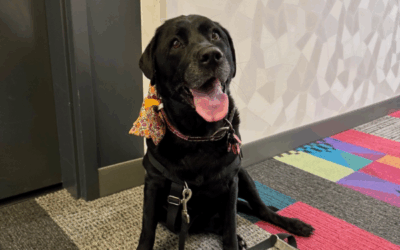



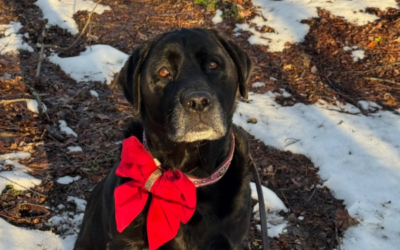
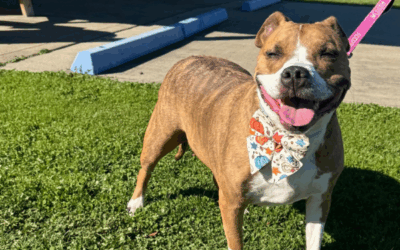
Just found you and I’m SO glad I did!
Your post about emergency vets is fantastic. From now on when we travel with our boys, I’ll know where we can get quick help.
Thank you!😊
Awh thank you so much. You are welcome. Glad I can be of help. We travel with our pups as well. I try to think of everything :-).